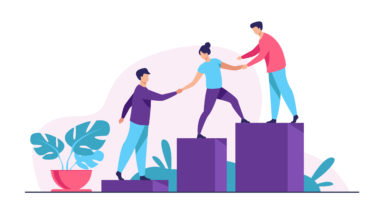
Whether you’re a professional working on up-leveling skills or a new student starting completely from square one, having a great support system in place can make a major difference in your success. And that’s exactly why Udacity mentors are a key part of our programs.
Meet Alvaro Andres Pinzon Cortes, sales manager, software developer and entrepreneur. He founded his own company Medi, a health platform that helps independent health professionals to improve the organization and conduct of their consultations through new technologies.
Today, Alvaro is a Udacity mentor for three Nanodegree programs — Blockchain Developer, Cloud DevOps Engineer and Hybrid Cloud Engineer.
In this mentor spotlight, we talk to Alvaro about how he started at Udacity, how working at Udacity fits in with his personal career strategy, the skills he’s developed through mentorship and more.
Q: How did you get started with Udacity?
A: I was working as a business strategy analyst for an airline company in Colombia, and while I enjoyed the work it didn’t feel like I was doing anything meaningful. I had an idea for what would eventually become my business and knew I needed to create a website for doctors. I knew how to program but I didn’t know anything about web development.
I enrolled in the Front End Web Developer Nanodegree and once I completed the program, I was asked to be a mentor.
Q: What is your career strategy, and how does being a Udacity mentor fit into that?
A: My goals for my career were to reinvent education, the healthcare and medicine fields. My dream when I was younger was to be a doctor, but I realized quickly that I could make a bigger impact by leveraging my tech skills.
I knew that everything starts with a great education, and that means it needs to be both accessible and affordable. My passion for continuing education is how I ended up being a Udacity mentor.
Q: One of the things that Udacity is known for is peer collaboration. Why do you think this is important to the learning process?
A: For me, one of the most important things in this journey has been the pure collaboration I’ve learned in the mentorship.
In my case, it’s been about more than interacting with my peers and students. Building a close relationship with another mentor has really helped me. Having someone in the same position I am who can guide me has allowed me to improve and learn from someone with more skills in that area.
One of the things I’ve learned from my own mentor, Ani, was attention to detail. We talked a lot about what we did in our mentoring, comparing our strategies and approaches and sharing tips. That helped me identify some important things for myself, like how to measure my performance and success as a mentor.
Udacity mentors really care, and improving my own performance helps the people I mentor. Plus, the opportunity to meet so many new people and network with people you can learn from makes the mentorship even more gratifying.
Q: Can you share a little about some of the new skills you’ve developed on your journey as a Udacity mentor?
A: Throughout this journey, I’ve improved and developed my skills. The first thing about Udacity is it helps you learn faster and better because of the way the programs are designed. That ability to learn quickly is really important for me as a developer and in my overall career.
Another important thing is learning how to debug or solve problems and I know my performance in that area has improved as well. Having a good process in place, that includes things like checklists, has been helpful.
I encourage my students to “read better,” meaning find a way to retain what they learn. For me personally, this meant creating a series of tutorials and that really helped me to not forget the things that are learned and to be able to teach the students.
Being both a student and Udacity mentor helped me to learn useful tools and technologies, not only from my field, but from other fields. It’s really helpful for college students and professionals. It helped me to learn more about AWS and MPM. I still want to learn Jupiter and eScience, and some other tools like Tableau.
This mentorship has been incredibly useful for learning new skills overall. Technologies rapidly evolve and best practices change, so being a mentor helps me stay current.
Q: What advice would you give to new students?
A: Collaborating and fostering close relationships helps you build your skills. Learning from others is valuable. Udacity gives you a lot of opportunities to learn new things, new tools and new skills.
Try to learn not only things that apply to your career but other skills that go beyond that. Learning through mentorship can be very powerful.
Become a Udacity Mentor Today
Becoming a Udacity mentor isn’t just about what you give to students — what you personally get out the experience can be highly impactful on your own trajectory.
As a mentor, you’ll build subject-matter expertise while deepening your knowledge, gain valuable leadership experience and hone your people skills. You’ll have the perfect opportunity to improve your communication, learn how to motivate and guide aspiring learners and create meaningful connections with students across the globe.
Learn more about becoming a Udacity mentor.



